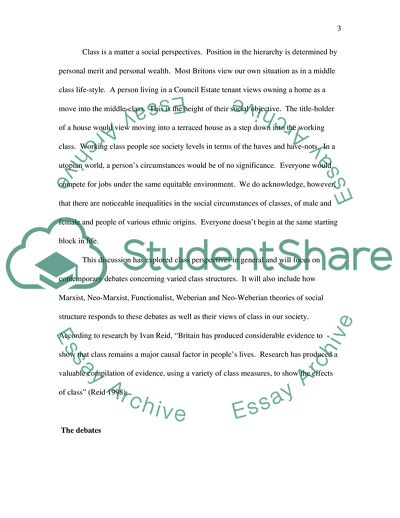Cite this document
(Is Class Still Relevant in Contemporary Britain Coursework, n.d.)
Is Class Still Relevant in Contemporary Britain Coursework. Retrieved from https://studentshare.org/social-science/1703297-is-class-still-a-relevant-concept-in-the-understanding-of-social-divisions-in-contempory-britain
Is Class Still Relevant in Contemporary Britain Coursework. Retrieved from https://studentshare.org/social-science/1703297-is-class-still-a-relevant-concept-in-the-understanding-of-social-divisions-in-contempory-britain
(Is Class Still Relevant in Contemporary Britain Coursework)
Is Class Still Relevant in Contemporary Britain Coursework. https://studentshare.org/social-science/1703297-is-class-still-a-relevant-concept-in-the-understanding-of-social-divisions-in-contempory-britain.
Is Class Still Relevant in Contemporary Britain Coursework. https://studentshare.org/social-science/1703297-is-class-still-a-relevant-concept-in-the-understanding-of-social-divisions-in-contempory-britain.
“Is Class Still Relevant in Contemporary Britain Coursework”. https://studentshare.org/social-science/1703297-is-class-still-a-relevant-concept-in-the-understanding-of-social-divisions-in-contempory-britain.


